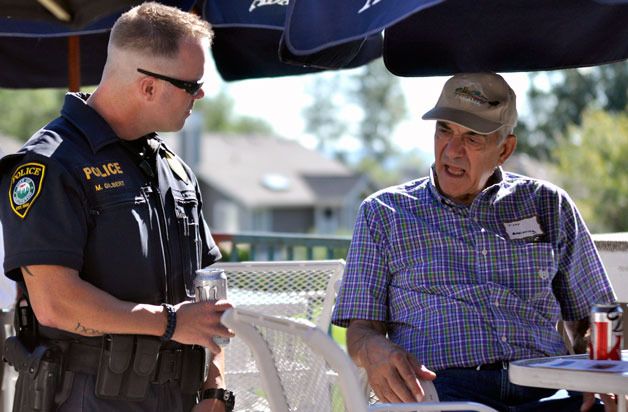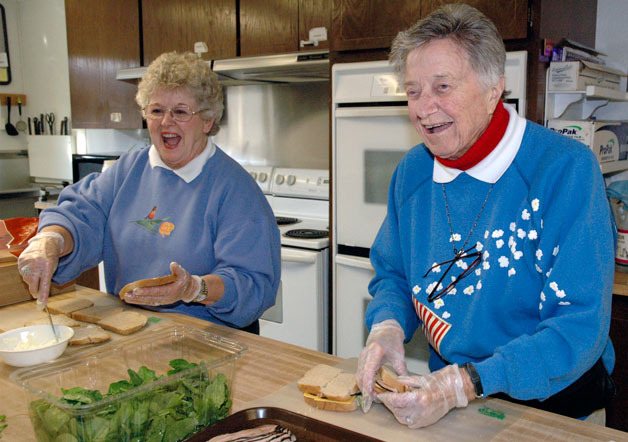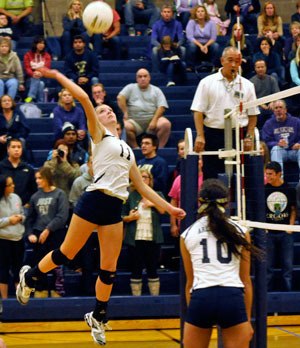ARLINGTON — When police officers, firefighters, K9 units and city officials convene on one location, it’s generally not a good sign. But on Tuesday, Aug. 6, it was a welcome celebration between community members and law enforcement for Arlington’s annual National Night Out Against Crime.
This year marked a slight change in the event — rather than hosting it at one central location for all Arlington residents to visit, several neighborhoods hosted their own individual Night Out.
“These events are important because they break down barriers,” said Arlington Mayor Barb Tolbert. “When you are doing public safety, it’s more than just police and fire. The best thing a community can do to stay safe is know their neighbors, know their habits, and that way you recognize if something is out of the ordinary.”
Four Arlington neighborhoods — Gleneagle, Crown Ridge, Eagle Heights and Country Manor — hosted individual events inviting their community to attend and interact with members of the Arlington Police Department, the Arlington Fire Department, city of Arlington directors and council members, and even featured appearances by McGruff the Crime Dog and K9 officer Annie, a real-life crime-fighting dog.
“The idea for the National Night Out is to get community members to know who their neighbor is,” said Maxine Jenft, volunteer coordinator for the city of Arlington. “When we hosted the event in one location there was no camaraderie because it drew people from all across town, not from their actual neighborhoods. To have four or five neighborhoods on the first try is terrific, and we anticipate that we will continue to host individual neighborhood events each year.”
Tolbert said she is excited about the event’s new format because it goes back to the original purpose of the National Night Out, which began almost 30 years ago.
“I really like the idea of hosting it in individual neighborhoods,” she said. “It’s what the cusp of the program is all about. It’s about knowing people in your individual neighborhood.”
Tony Macchiarella attended the Night Out for the first time and just wanted to see what it was all about.
“I’ve met the mayor and the members of the police and fire departments before,” he said. “One thing that always gets me about Washington is that in Illinois if you have a second-story building, you need to have another fire exit out the back. But you don’t see that here. Sometimes there are ladders, but tell me — what woman can climb down a ladder with an infant in her arms?”
Macchiarella’s concerns about fire safety are another aspect of the Night Out — one which Mayor Tolbert said is equally important to meeting his neighbors.
“It’s not only about neighborhoods. It’s important for members of the community to build relationships with city personnel, so they can hear what the residents think and what their concerns are,” she said.
Arlington Chief of Police Nelson Beazley spoke about the importance of not only observing the habits of your neighbors, but also reporting suspicious behavior promptly.
“Call 911 as it’s happening,” he said, of crimes in progress. “Give us a description or a license plate. Even if you don’t have all the information, chances are someone else has already called about them and we can tie together that information. We need your assistance, so don’t hesitate to call.”
Judy Ness, event coordinator for the Gleneagle neighborhood Night Out said it is important to know your neighbors, especially in the event of a natural disaster.
“We want people to get to know their neighbors,” said Ness, echoing sentiments from Tolbert and Jenft. “We are getting ready for a big earthquake in this region. In fact I believe we are overdue for it. When a natural disaster happens and you call 911, they’ll say, ‘Oh, it’ll be three days before we can send someone’ because they have priorities — hospitals, roadways, schools. If people don’t know their neighbors, they won’t know who can lend a chainsaw if a tree has fallen down, or fresh water or food.”
“If we know our neighbors, we can come together and help each other.”







